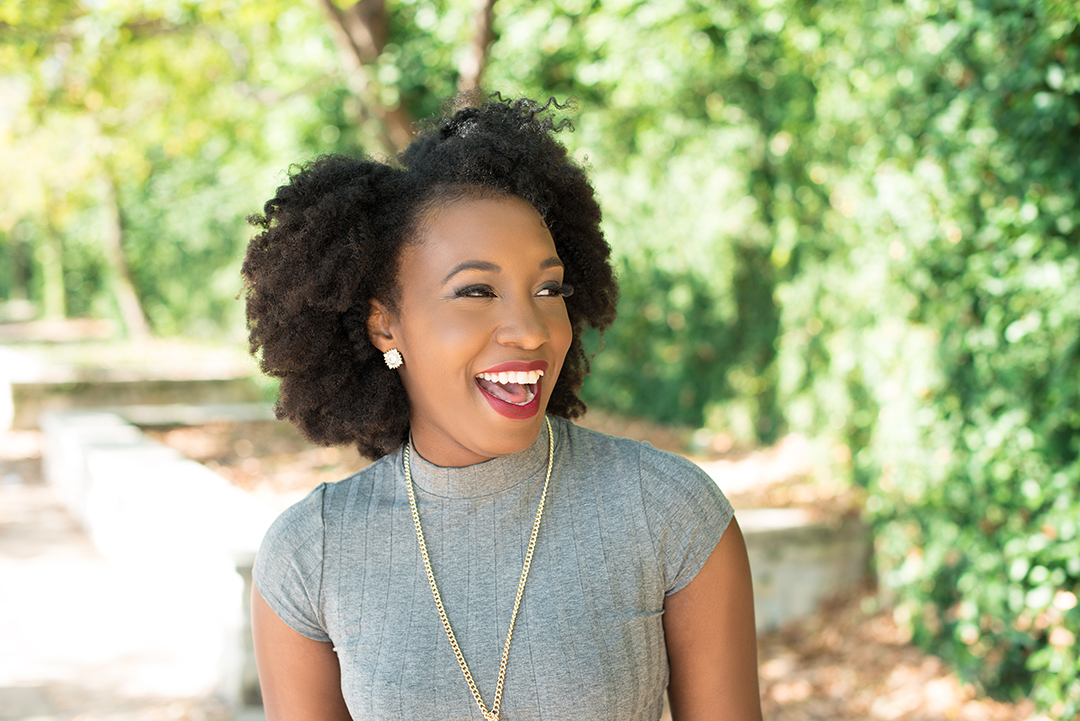For Chela White-Ramsey, discovering her heritage meant unearthing the unknown.

For me, this path to black womanhood has always been confounded by a feeling of resolved anchorlessness. I felt distinct marginalization during conversations about my ancestors because, for me and others like me, there’s a high probability that our ancestors were slaves. The revulsions of slavery are many, but stripping people of their language and ethnic traditions and violently suppressing any chance of literacy generated a palpable emptiness that many black Americans feel today. We wander through life without the grounding sense of belonging, as we’re not sure where we came from, and we feel a void. I can’t think of a better way to illustrate the point than to share a story about my husband’s days in elementary school.
His teacher instructed the class to do a project about where their ancestors came from and trace a family tree. Some of the kids were black-American students. When they told her they didn’t know which country their ancestors came from, the perplexed teacher publicly singled out the black kids in class.
“Just pick any country in Africa,” she said, ignorant about how her assignment adversely impacted them and furnished with the non-conscious idea that all black Americans are from Africa.
There was no special lesson on heritage for the black kids. There were no family trees.
Having faced similar microaggressions, I understand the resolve to leave well enough alone when it relates to the daunting task of learning our ethnicity. There was irony associated with those ancestry.com commercials: “I wish I could get into a time machine and go back 100 or 200 years and just meet these people,” quips the black guy. Apart from the fact that going back 200 years meant certain danger or death for black people, there’s something else that accompanied the absurdity, a tacit acceptance about our condition. Those things weren’t for us. It certainly wasn’t for a black girl without an etched legacy living in Louisiana.
As I matured, tracing my lineage seemed intangible. I’d accepted that my ancestors were slaves, chattel, sub-human, and the likelihood of surviving records was slim. Nonetheless, there was a marrow-deep desire to fill the emptiness, a flame that eventually engulfed me. I needed to know where I came from.
I toyed with a family tree and reached out to my grandmother. She shared what she knew, and I followed up with research. It didn’t take long to learn my second great-grandfather, Samuel, was born in 1860 and had 10 children with his wife, Ellen. He was classified as “Mulatto or Mexican” in the federal Census, and was literate. I traced my maternal lineage back five generations.
The plantation my ancestors worked was 15 miles from my hometown of Morgan City, La. It was likely owned by Nathan or David Berwick, whose family founded the nearby town of Berwick, La. I experienced a twinge of disappointment and shame surrounding my findings. The inference was that my ancestors didn’t venture far upon emancipation. At the risk of sounding corny, I imagined that I’d be the descendent of a Nat Turner or a Frederick Douglass. I wanted to find a hero among my ancestors because I wanted to believe that, like them, I’d rebel against a system that deemed me inhuman. To learn that they remained in bondage was disillusioning, but that feeling was quickly replaced by pride and gratitude.
My ancestors “yes sir’d” and “yes ma’am’d” their way through dignity-stripping atrocities. They kept silent despite relentless provocation. They danced, sang and entertained to survive. They determined to be human in a country that viewed them as 3/5 of a person. They stayed alive and gave birth to us. They were heroes. I decided to dig deeper and research our ethnic background.
The goal was to learn what country they were from and examine traditional customs, but complexity ensued. Having my DNA tested was simple, but the results forced me to face reality. I learned that while the majority of my DNA consisted of Nigerian ancestry, I was also part European. And that was conflicting. I don’t have European family members, so I was left to assume that something happened during my ancestors’ enslavement. It’s a nasty part of history to confront, and the implications are troubling. There was no such thing as consensual sex between slave owners and slaves who had no ownership of their bodies. Based on research about this era, I’m left to consider that someone may have been sexually assaulted. It’s undoubtedly distressing, but ultimately, pride and gratitude proved irrepressible.
Taking on this challenge was the best gift I’ve given myself. Before this, I’d never thought about what it meant to honor my ancestors, but now, I can’t stop thinking of ways to celebrate that history. It’s a good journey and I’ve learned that I do have a legacy. We all do. For many, it’s rooted in unknown traditions and cultures. It’s tinged by the horrors of slavery and its aftermath, but it’s redeemed. It’s redeemed in pride and strength and the ability to overcome.

